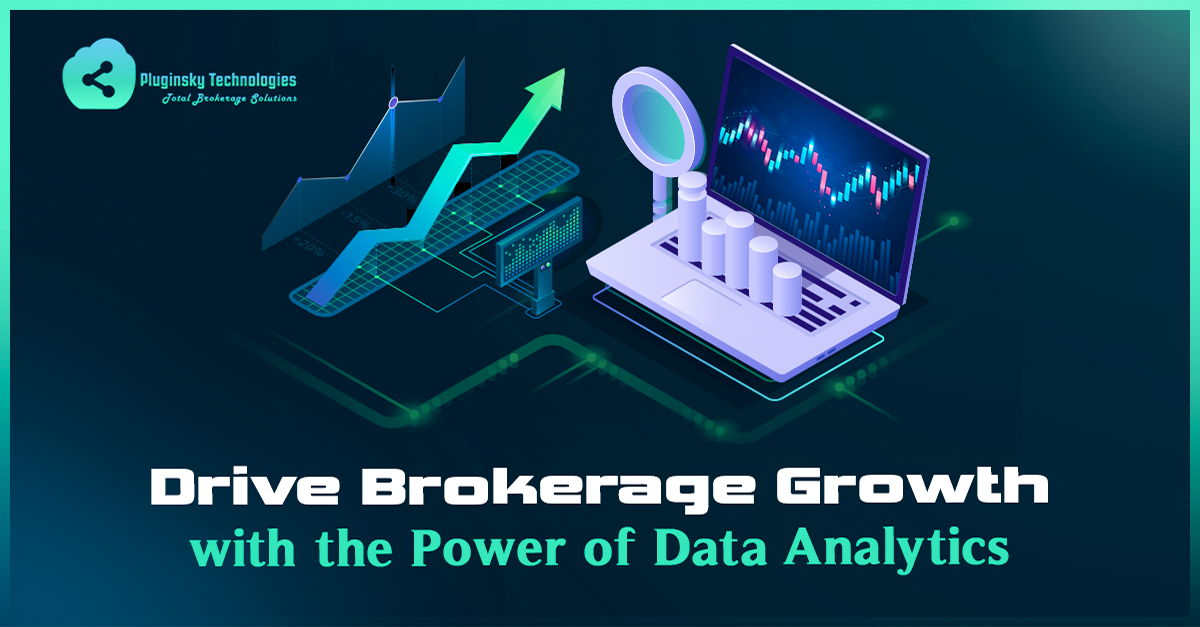In the brokerage industry, data is more than just numbers-it's a powerful tool that can unlock growth and drive decision-making. The integration of data analytics into brokerage operations is transforming how firms operate, enabling better client relationships, more efficient risk management, and targeted marketing strategies. Let's explore how brokerages can leverage data analytics to gain a competitive edge and boost business growth.
1. Enhancing Client Relationships through Personalized Insights
Data analytics allows brokers to move beyond traditional, generalized client service approaches. By analyzing client behaviors, trading patterns, and preferences, brokerages can deliver more personalized services, fostering stronger relationships.
For example:- Identifying which asset classes interest clients the most.
- Offering personalized trade recommendations based on historical data.
- Tailoring communication strategies to align with individual client preferences.
This level of personalization enhances client satisfaction, increasing retention rates and lifetime customer value. Moreover, satisfied clients are more likely to engage in referrals, fueling organic growth.
2. Optimizing Risk Management with Real-Time Data
Effective risk management is the cornerstone of any successful brokerage. With the application of real-time data analytics, brokers can gain a comprehensive view of market trends, price movements, and client trading activities, allowing for more informed decision-making.
Key Benefits:
- Monitoring and predicting market volatility to hedge against risks.
- Identifying high-risk clients and mitigating exposure.
- Automating alerts for margin calls or potential trade risks, enabling proactive management.
By leveraging advanced risk management systems powered by data analytics, brokerages can minimize losses and safeguard both the firm and its clients against adverse market movements.
3. Driving Growth through Data-Driven Marketing Strategies
In a saturated market, standing out as a brokerage firm requires precision in marketing. Data analytics provides the tools to craft highly targeted campaigns by segmenting clients based on their trading habits, risk profiles, and interests.
Data-driven marketing strategies include:
- Creating personalized marketing offers to re-engage inactive clients.
- Identifying new lead opportunities through predictive analytics.
- Using performance metrics to adjust and optimize campaigns in real-time for better ROI.
Through such data-driven marketing, brokerages can ensure that their marketing spend is allocated efficiently, driving greater engagement, conversions, and ultimately, growth.
4. Improving Operational Efficiency with Predictive Analytics
Predictive analytics has the potential to transform brokerage operations by forecasting trends and behaviors. By analyzing historical data, brokers can predict future client needs, trade volumes, and market movements, making their internal operations more efficient.
Examples of operational improvements include:
- Anticipating periods of high client activity to allocate resources accordingly.
- Streamlining customer service processes by using AI chatbots that analyze client queries.
- Reducing trade execution times by predicting market liquidity trends.
Increased operational efficiency not only cuts costs but also enhances the overall client experience, positioning brokerages for long-term success.
5. Boosting Regulatory Compliance with Data Transparency
Compliance is a major concern for brokers, especially in an industry governed by stringent regulations. Data analytics can streamline compliance by tracking and analyzing every trade and transaction in real-time, ensuring adherence to legal and regulatory standards.
Key compliance benefits:
- Real-time monitoring of trading activities to detect irregular patterns.
- Automating compliance reporting and data archiving.
- Improving audit trails with transparent and accessible data records.
By leveraging data analytics, brokerages can ensure they remain compliant while avoiding costly fines and penalties that may arise from regulatory breaches.
6. Actionable Insights for Continuous Growth
Finally, one of the most significant advantages of using data analytics in the brokerage industry is the ability to generate actionable insights. By consistently analyzing market trends, client behaviors, and operational performance, brokerages can make informed decisions that drive continuous growth.
Continuous Growth Strategies:
- Refining trading platforms based on client usage patterns.
- Identifying emerging markets or under-served asset classes.
- Enhancing product offerings by leveraging customer feedback and data trends.
These insights help brokerages stay agile, responsive, and competitive in an ever-evolving market.
Conclusion
Data analytics is no longer a luxury-it's a necessity for brokerages aiming to thrive in today's dynamic financial environment. By leveraging data to personalize client services, optimize risk management, drive targeted marketing, and improve operational efficiency, brokerage firms can unlock new levels of growth and sustainability.
